IT'S about the ability, not the disability."
That was the refrain echoed over and over again by wounded, ill and injured servicemembers who participated in the first-ever Warrior Games at the U.S. Air Force Academy and the Olympic Training Center in Colorado Springs, Colo., last spring. Most said it while shrugging their shoulders and trying to downplay their achievements, as though participating in an intense Paralympic-sponsored sports competition mere months after sustaining catastrophic injuries happens every day.
Specialist Craig Smith ran a race only a month after leaving the hospital. Sgt. Daniel Biskey competed in the LA Marathon with a hand cycle exactly three months after he stepped on a land mine. They and many others turned to sports to help them heal the second their doctors gave the OK. Others heard about the Warrior Games and were reinvigorated, determined to recover fast enough to participate.
"It was good to get away from the hospital and get a chance to shoot," said Staff Sgt. Eugene Ethengain IV, who squeezed in the Warrior Games between back and neck surgeries for disks he injured on duty. He called the games his "last hooah" for the Army, because he doesn't know whether he will have to get out or not.
"When I heard archery, I said, well, 'I can do archery. That wouldn't put any strain on my back.' I learned how to shoot bow and arrow at about seven and from the first day I started shooting, I fell in love with it. I've never had the opportunity to compete. I hadn't actually shot in two and a half years, since I've been injured. I haven't done much of anything since I got hurt," Ethengain said, explaining that he is a member of the Nanticoke Indian tribe and that his ancestors hunted with bows and arrows for centuries so it's in his blood.
"It's actually a relaxing sport, not only the sport, but also the actual hunt. It's like being in a fair fight or like boxing: you've got gloves, they've got gloves. Almost anyone can take a rifle and fire and shoot at something, but to actually stalk something and then shoot, you know if you miss with the arrow or make the slightest sound, dinner's gone."
In addition to both recurve- and compound-bow archery, sports offered at the Warrior Games included rifle and pistol shooting, cycling, track and field, swimming, sitting volleyball and wheelchair basketball. Because servicemembers had to participate in more than one sport, many found themselves trying something completely new only a couple weeks before the games started-or actually at the games.
This was especially true of sitting volleyball-"I don't know how that's going to work," Ethengain wondered before the games-and wheelchair basketball, sports that Soldiers said were harder than the able-bodied versions thanks to the amount of upper-body strength they require.
"You must have upper body (strength) to bear the moves," Smith said of wheelchair basketball. He chose a leg amputation after injuries from an IED would have left him in pain for the rest of his life. "It takes a lot of dedication. Just pushing up and down the court takes more out of you because you're pushing out more wind every time you push the wheels. It doesn't compare. Stand-up basketball just doesn't compare to sit-down basketball." Although, he noted, baskets are at the same height, so "you have to use all your trunk muscles in order to get the ball up. If you don't, it's going to fall back every time."
The two sports also sparked a new inter-service rivalry between the Army and Marine Corps who, after shutting out Air Force and Navy, duked it out to cheers and catcalls from spectators who went nuts with each serve or basket. The Marines won gold medals in both events, leaving the Army to settle for silver amid whispers that the Marine Corps teams had been meeting to practice for months before the games.
"This is something that I think every Soldier in the military needs to experience, because when you see the atmosphere and the camaraderie, the esprit de corps, you can't beat it. That's what it's all about, bringing armed forces together, bringing Soldiers together. We're all on the same team. It doesn't matter. We fight on the same battlefield. We're going to play on the same battlefield. That's what's important," said Sgt. 1st Class Michael Harper of the Fort Carson, Colo., Warrior Transition Battalion. He also served as the platoon sergeant for one of the platoons of injured Soldiers at the games.
"All I did growing up was play sports. Being able to play sports again helped me to heal faster, get better, push for what I wanted. Everything a person with two legs can do, I can do," Smith continued, explaining that he hoped to make the Paralympic team. Just like many of the wounded warriors at the games, he didn't make any allowances for his injuries while training.
"(My injury) doesn't really affect how I train, because one thing that I told myself when I was going through my rehabilitation, was that I had to learn how to run, jump, skip, swim," agreed Sgt. Robert Price, who competed in archery, rifle shooting and sitting volleyball. "And I mastered all those skills. To me, with my injuries, it doesn't hinder me in any form or any fashion from what I want to do. If I want to do it. I'm going to do it.
"The importance of having an event like this is it gives all these wounded and injured or sick servicemembers out here (motivation)-just to show them that, sitting back in your room playing Xbox, that's not what your life is about. There are other things you can go do, more things you can go out and do. There are a lot of sports activities; you can intermingle with your community again. Life doesn't come to an end just because you're sick or you're injured. I'm one of the walking, breathing ones where (sports) helped me out big time. It's actually one of the things that kept me in the military," he continued.
Price is a below-the-knee amputee who is now a cadre member at Brooke Army Medical Center's Warrior Transition Battalion in San Antonio. Due to his work helping other Soldiers prepare for the Warrior Games, he was asked to carry the torch for the Army during the opening ceremonies, and went on to win the Army's first medal-a bronze in compound-bow archery-by a 16th of an inch.
"It felt great (to carry the torch), but at the same time you have happiness and joy, you've also got the sorrow part that goes inside the back of your head when you're sitting there going, "I've lost a bunch of friends; a bunch of people aren't here to see this, to experience this," Price added.
Soldiers like Price and Smith may want to push themselves, but it's up to doctors, physical therapists and cadre at warrior transition units to ensure that wounded, ill and injured Soldiers don't reinjure themselves or push back their recoveries, Harper explained.
"We have to monitor them, make sure we don't push them too hard and make sure that they're going along with their healing processes," he said. "Basically we have to look at what they come into the WTU with and slowly progress. We don't want to rush them too quickly into getting back into either competition or getting back into their jobs in the military. So basically we take it very slowly with them and then we ask them down the road how they feel about getting back into competition. And I think it's very therapeutic for them, especially sports.
"I think it shows that the Soldiers have immense heart. They have a lot of dedication. They have a great heart and they have a no-quit attitude. That's exactly what it is. That's what we want. We want to get these Soldiers with a no-quit attitude back into training, back on the battlefield. Or we can transition them to civilian life and that's what it's all about."
And at the games, the Soldiers not only inspired each other and their leaders, they also inspired their coaches. In addition to professional Paralympic coaches, many of the coaches were already there as squad leaders-or even players in the case of Sgt. Alonzo Lunsford, a former college basketball coach-and knew a little about the able-bodied version of the games. But some, like Sgt. 1st Class Thomas A. Rose and Sgt. David Sprecher of the Army Marksmanship Unit, were experts in their sports and happy to share their love of competition.
"I really enjoy working with these Soldiers," Rose said. "I like being able to offer what I have learned with my experience in shooting and competition, to help teach them what I've learned and to help them be better at what they're doing.
"I hope that they can gain more confidence in their ability to shoot and to shoot accurately. With this experience in competition, it's a whole other feeling. When you're qualifying, you're by yourself. But when you're in competition, you're competing against all these other people, these different services, and you learn more about yourself and what you're capable of, which gives you greater insight."
In fact, the Warrior Games, which the Army led in the medal count with 68, were considered such a success, and servicemembers had such a good time, that Brig. Gen. Gary H. Cheek, the outgoing assistant surgeon general of warrior care and transition and the driving force behind the games, was already dreaming about future competitions only one day into the inaugural games. He envisioned future competitions complete with preliminaries and qualifying events, additional sports and the participation of allies.
"The number one thing I asked all of them to do was to take this flame, this Olympic torch, this spirit it has brought into them...back to their comrades-who are also recovering and moving forward-and light that spark in them, (get) their comrades back into life and into physical activity and other things as well. That's the real purpose of these games: to have a greater impact in the programs we're running across all the military services in the future," he said.
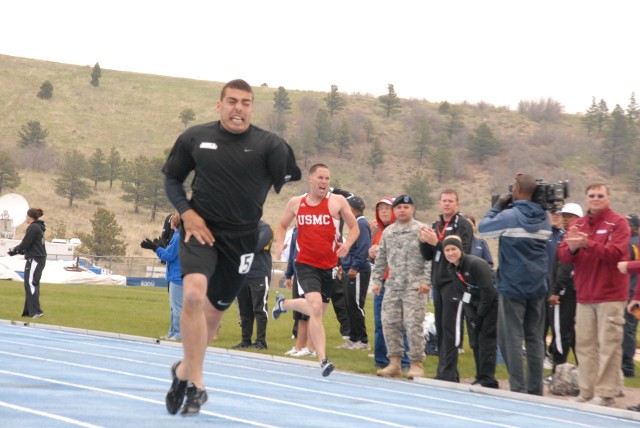
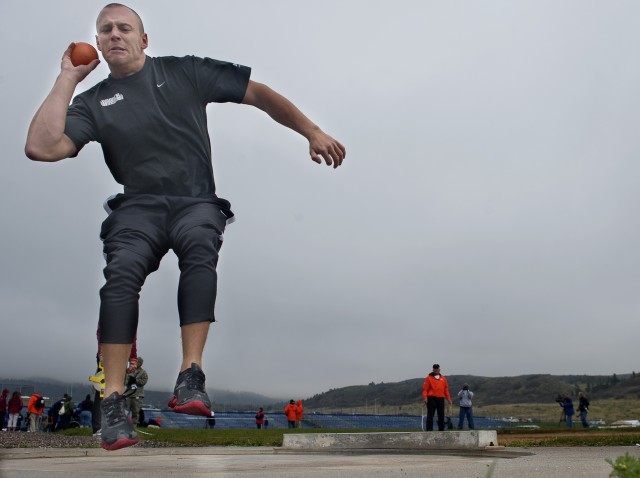
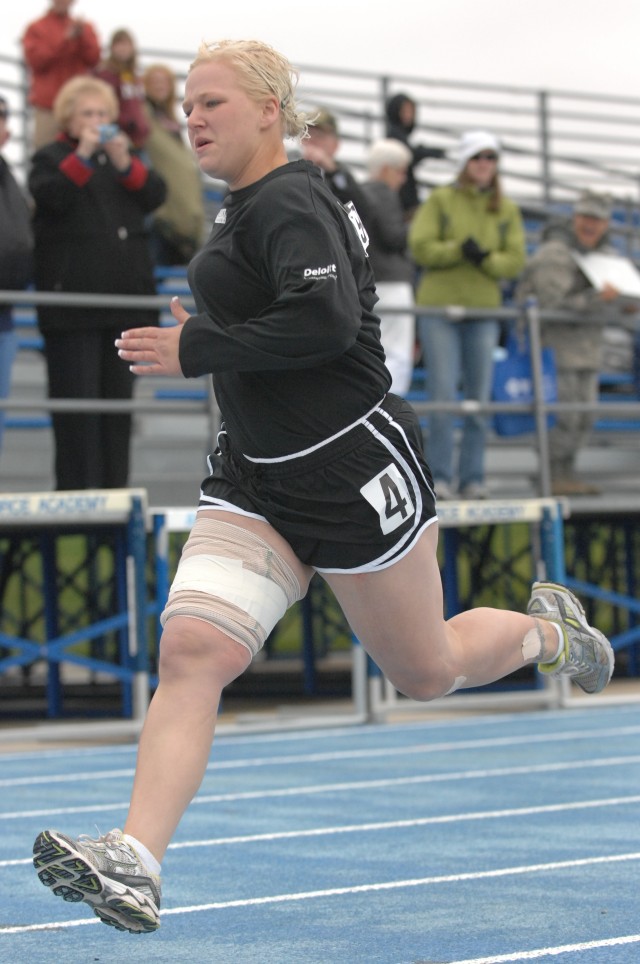
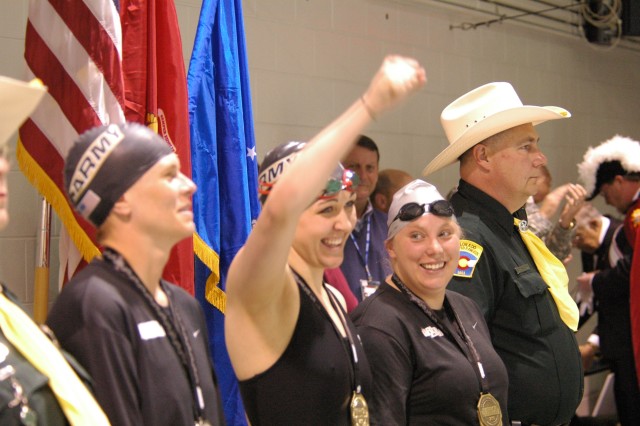
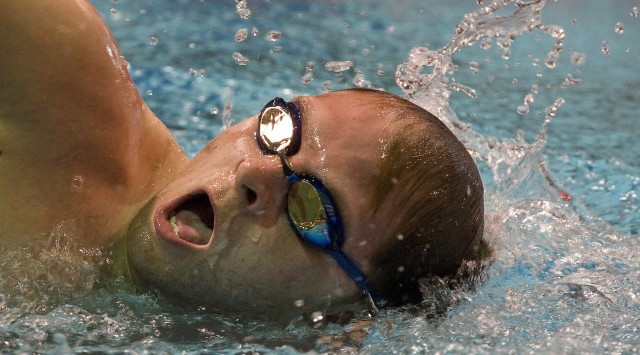
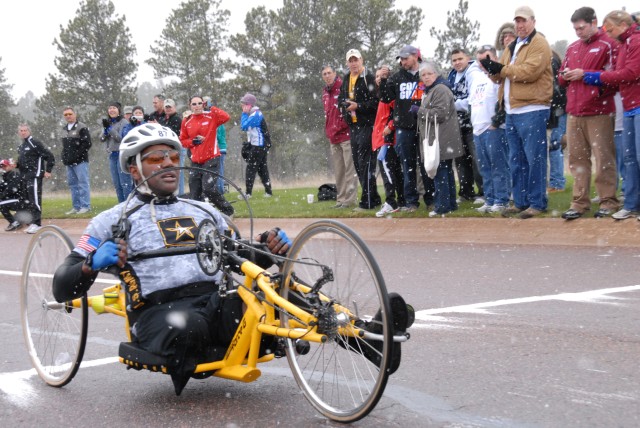
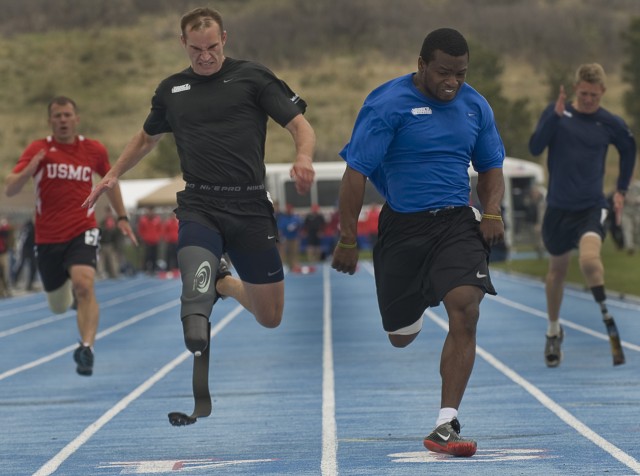
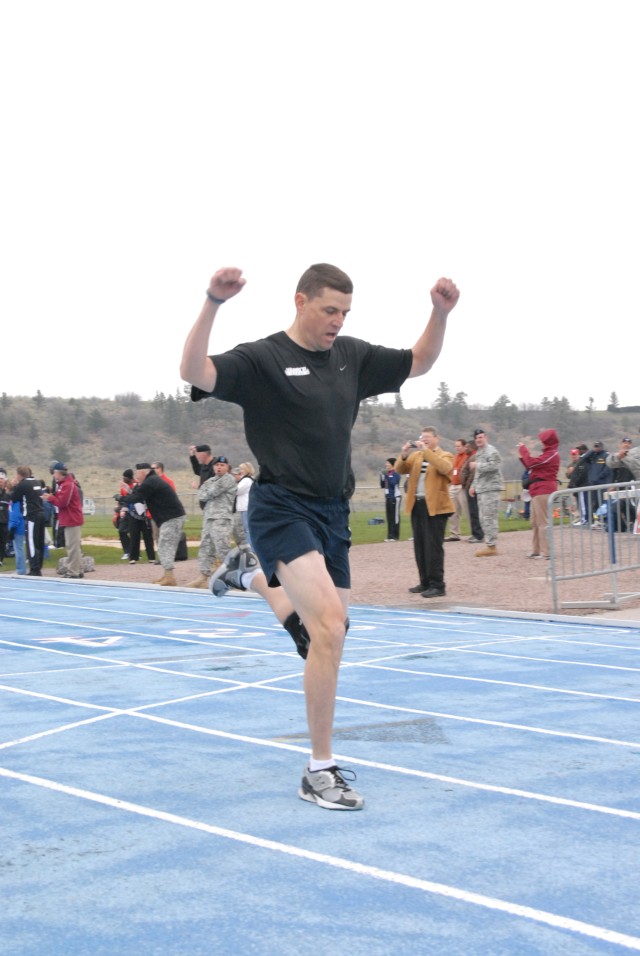
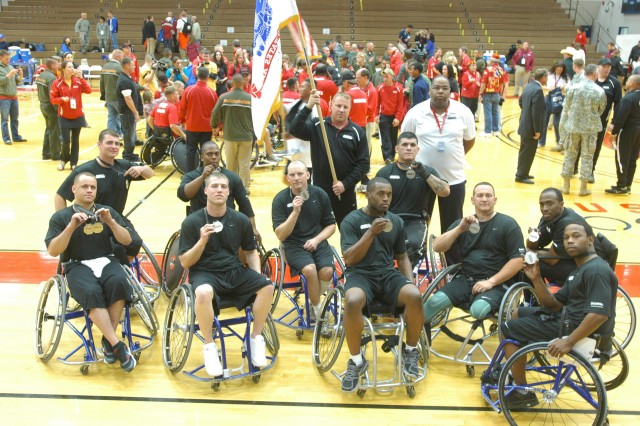
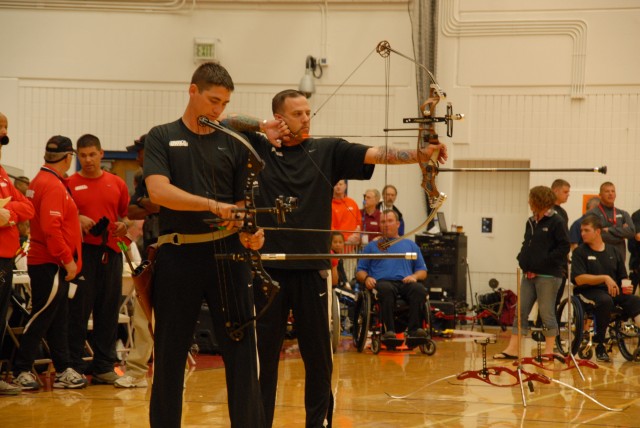
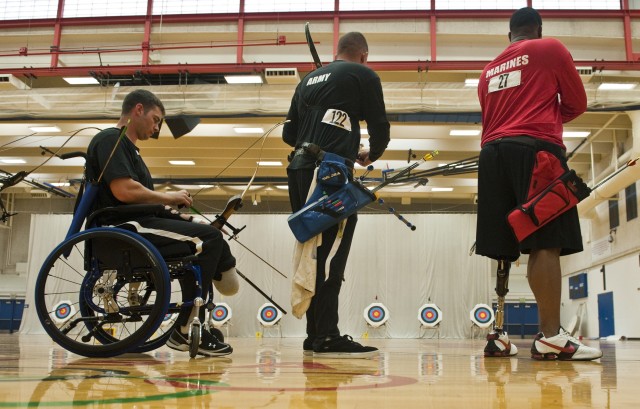
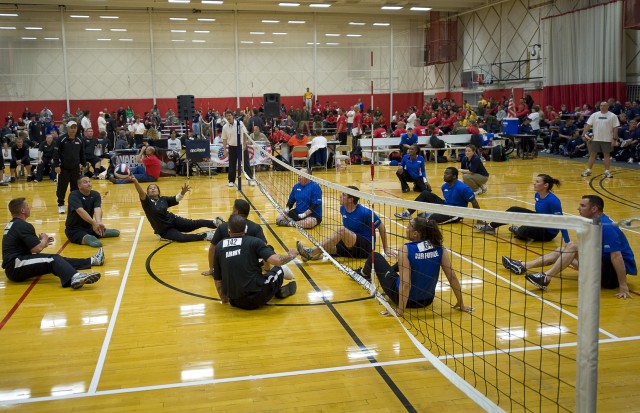
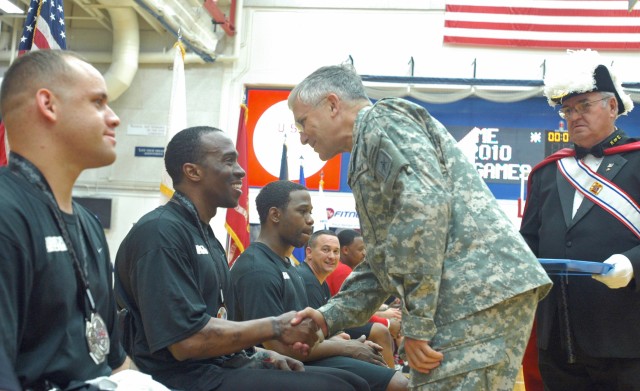
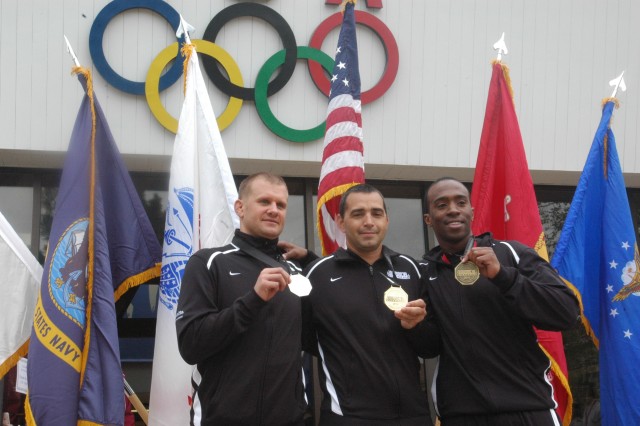
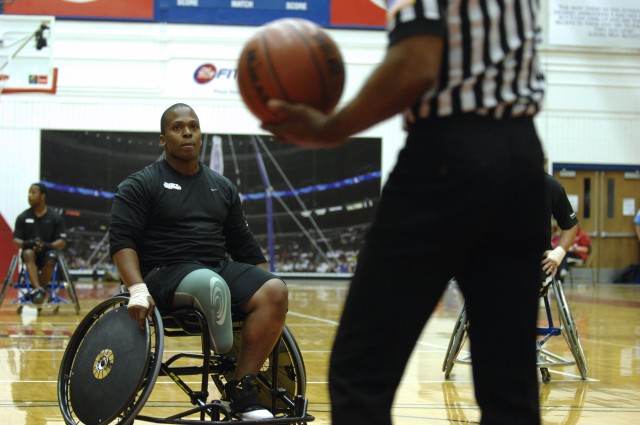
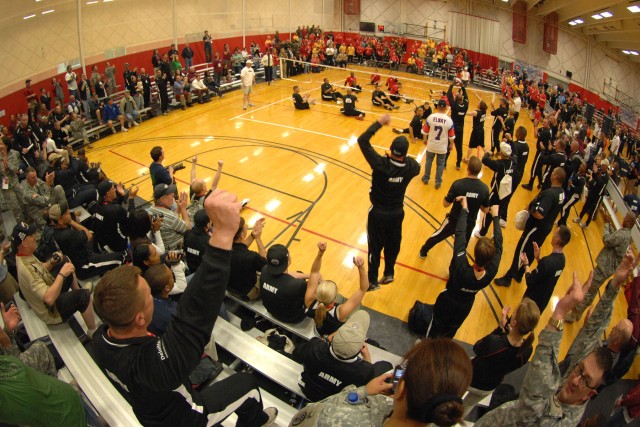
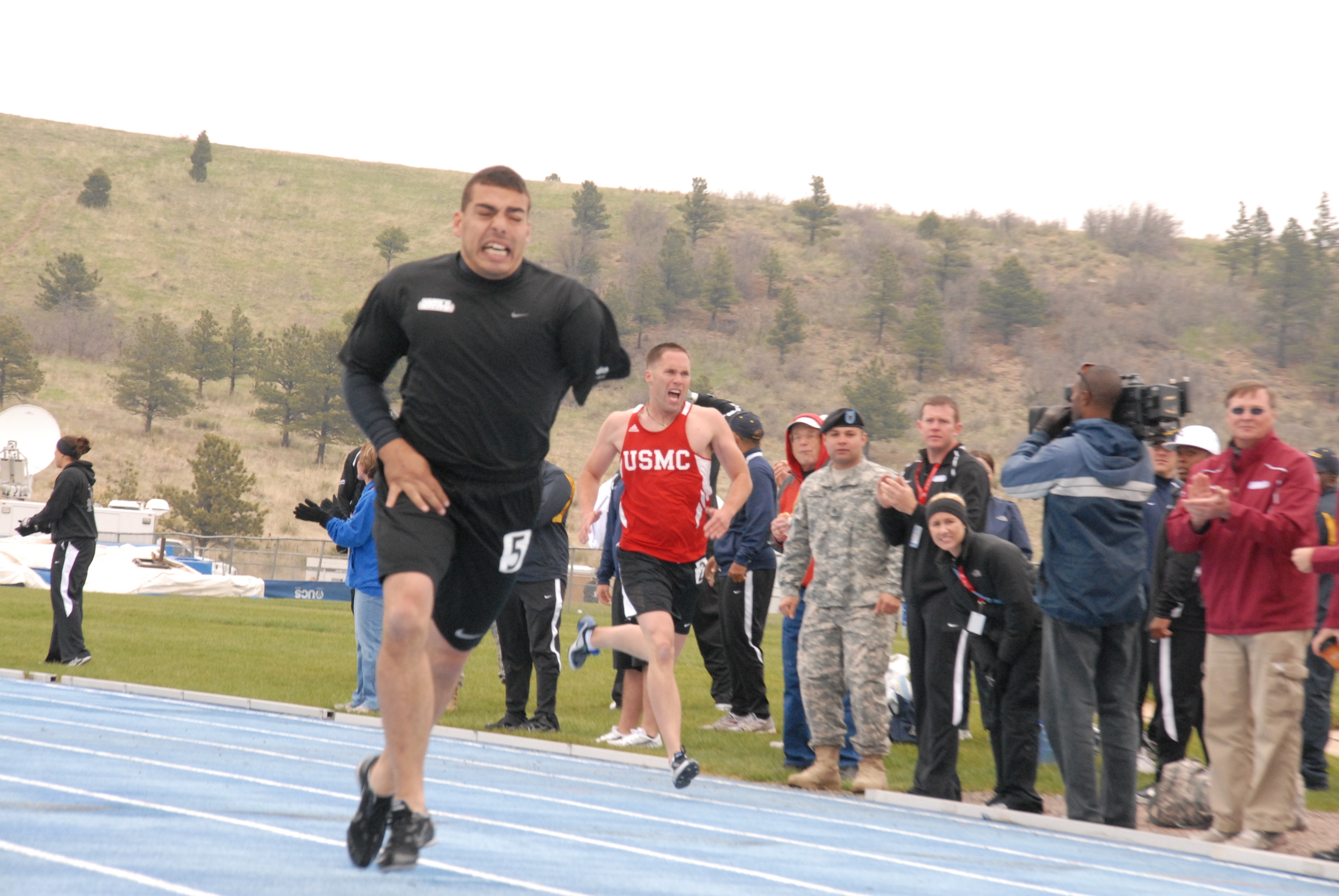
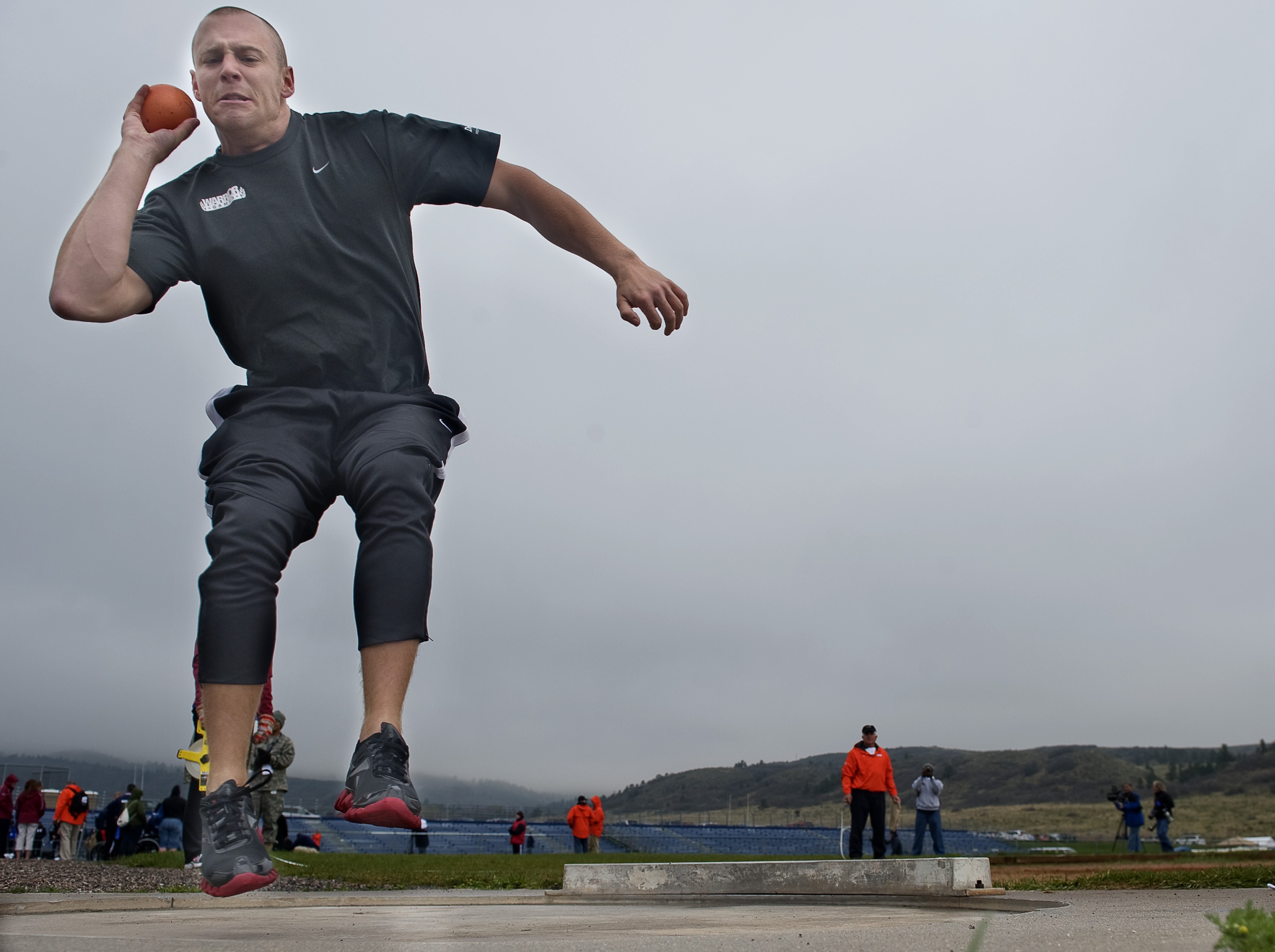
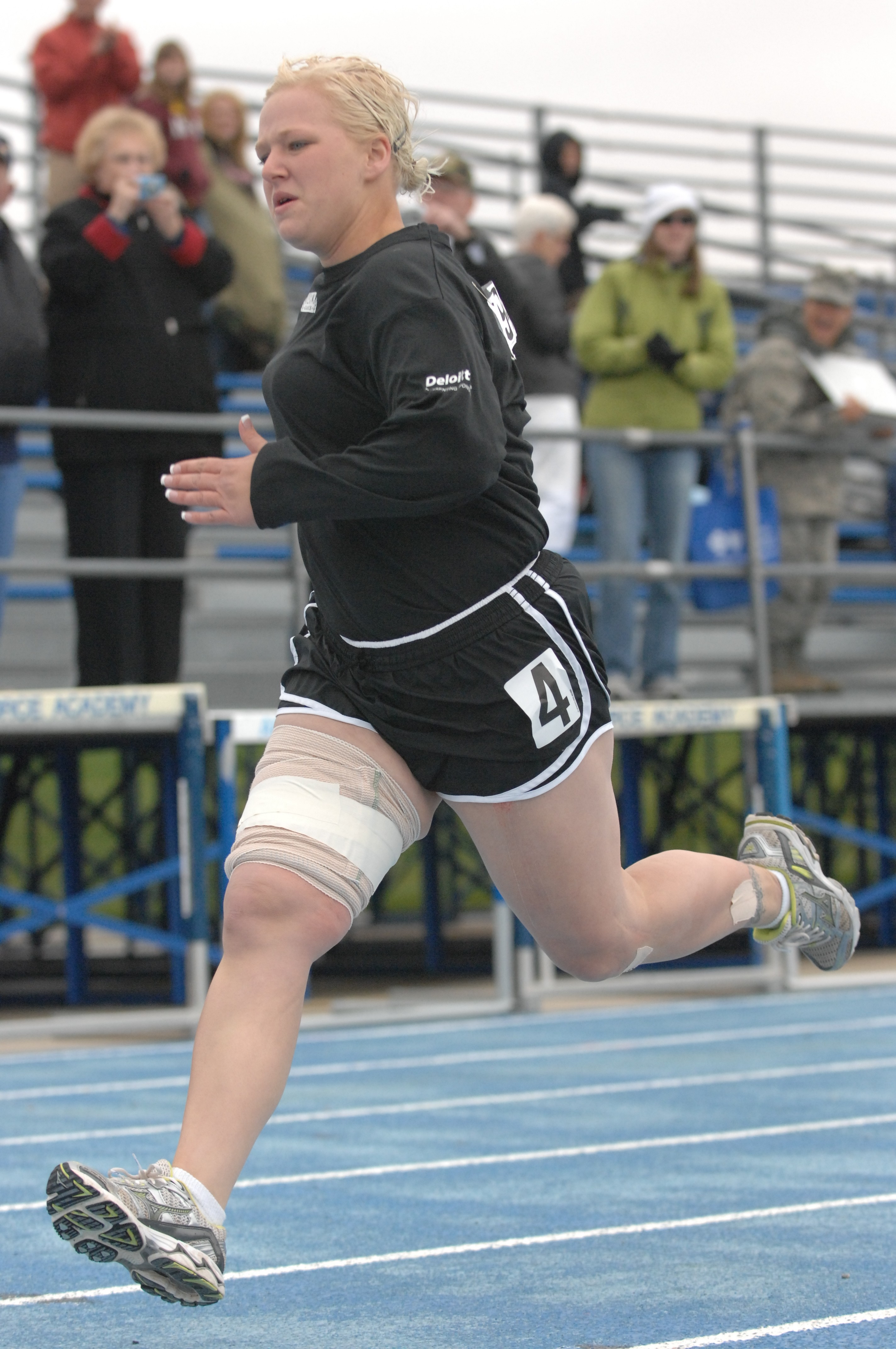
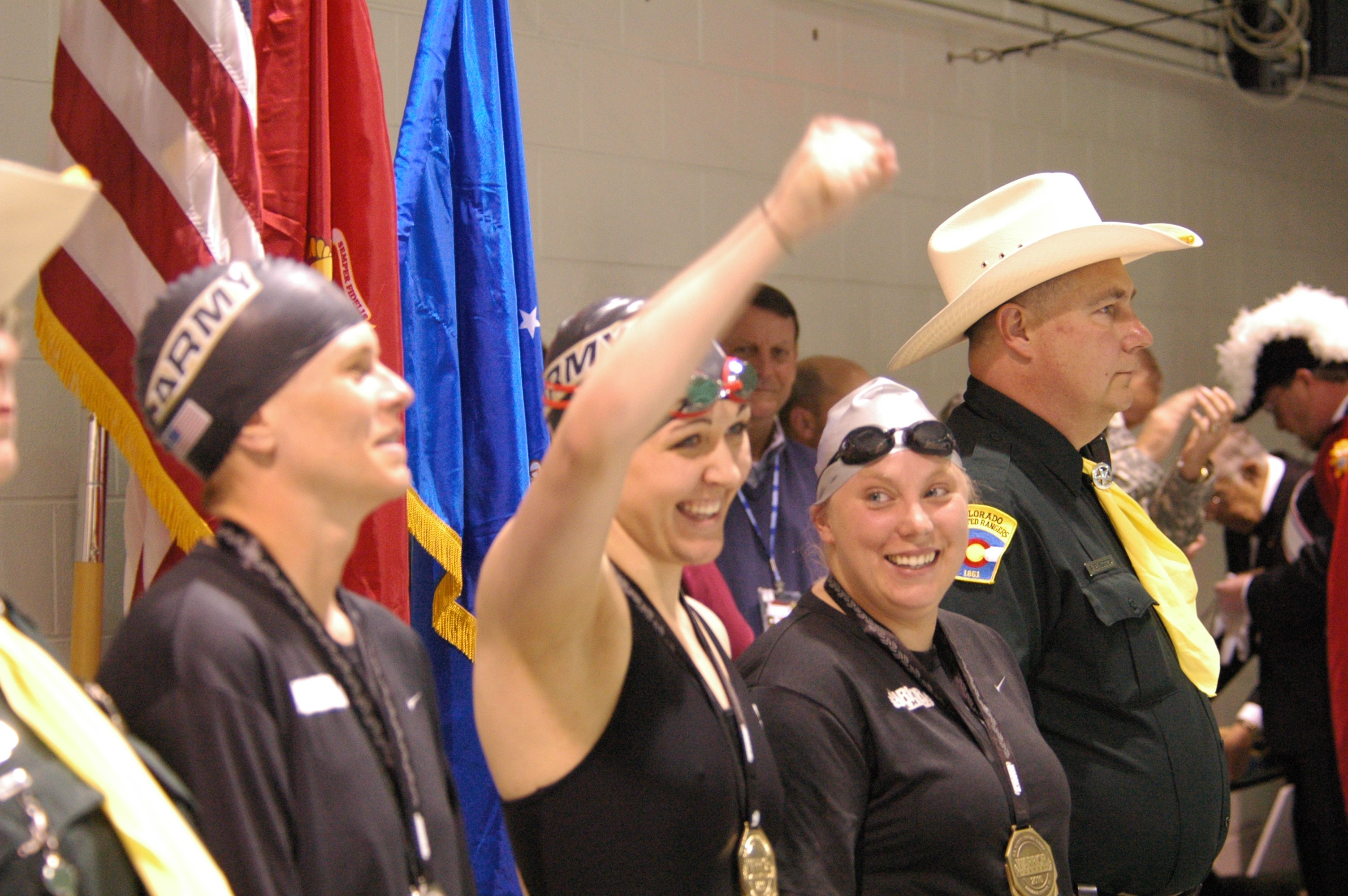
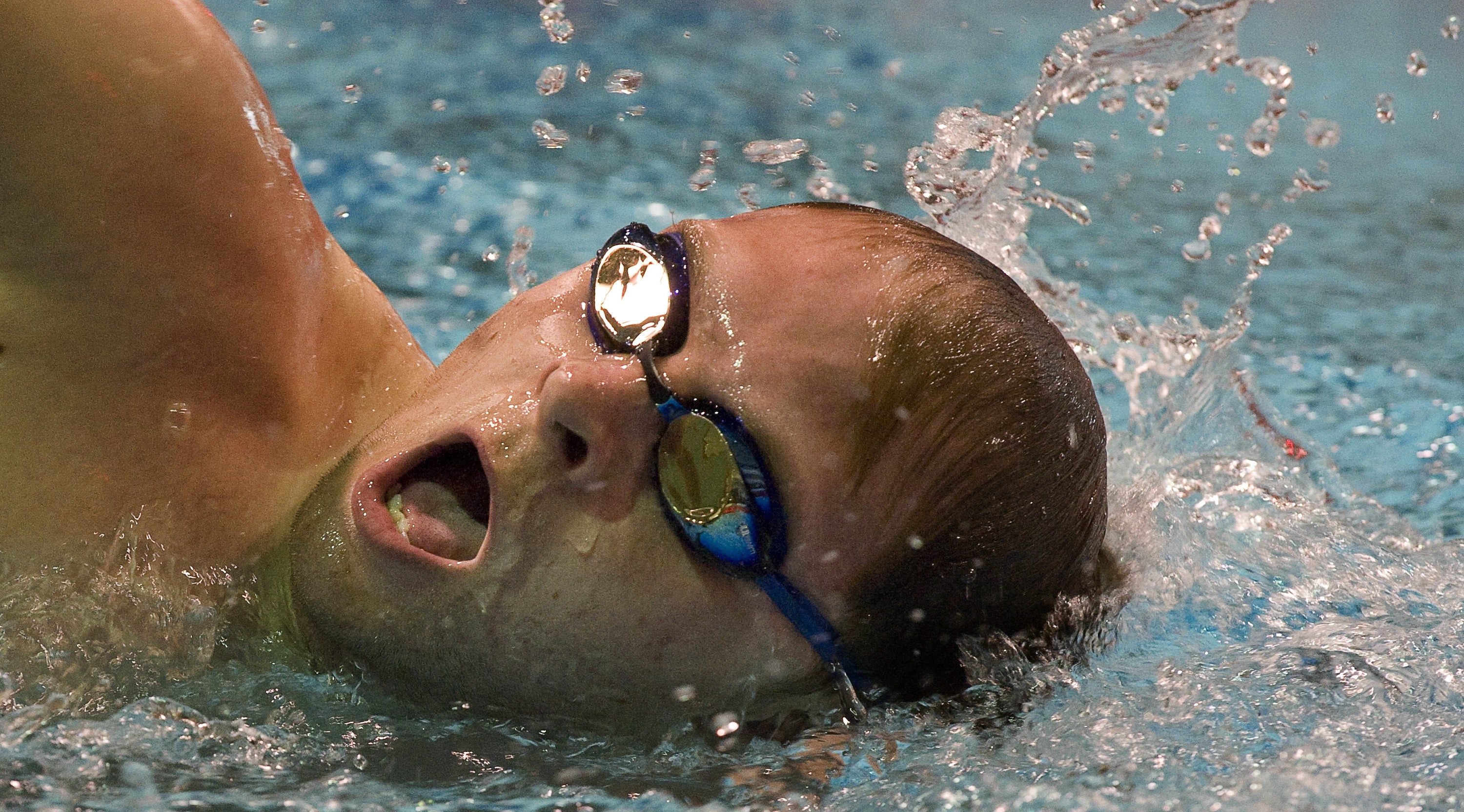
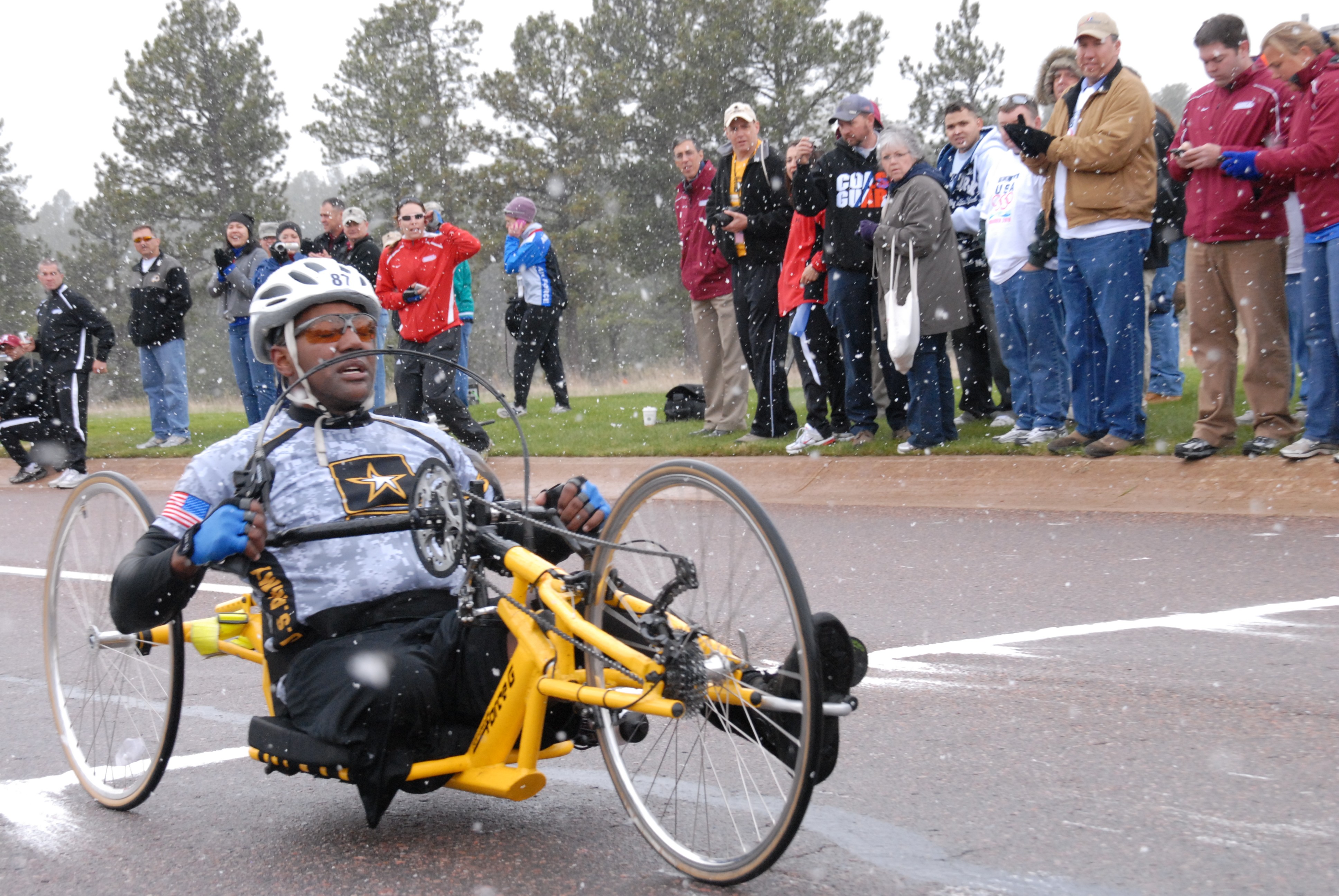
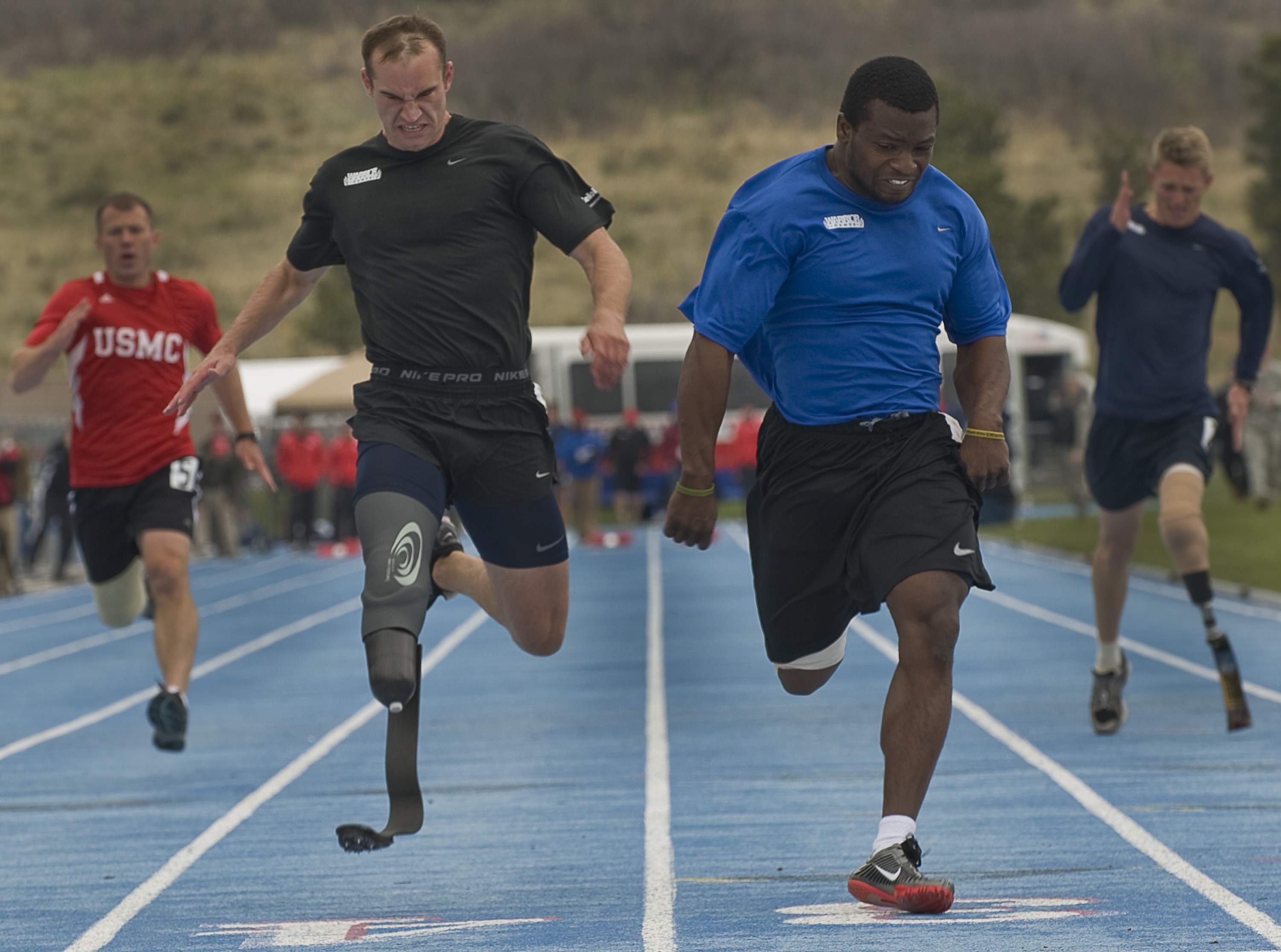
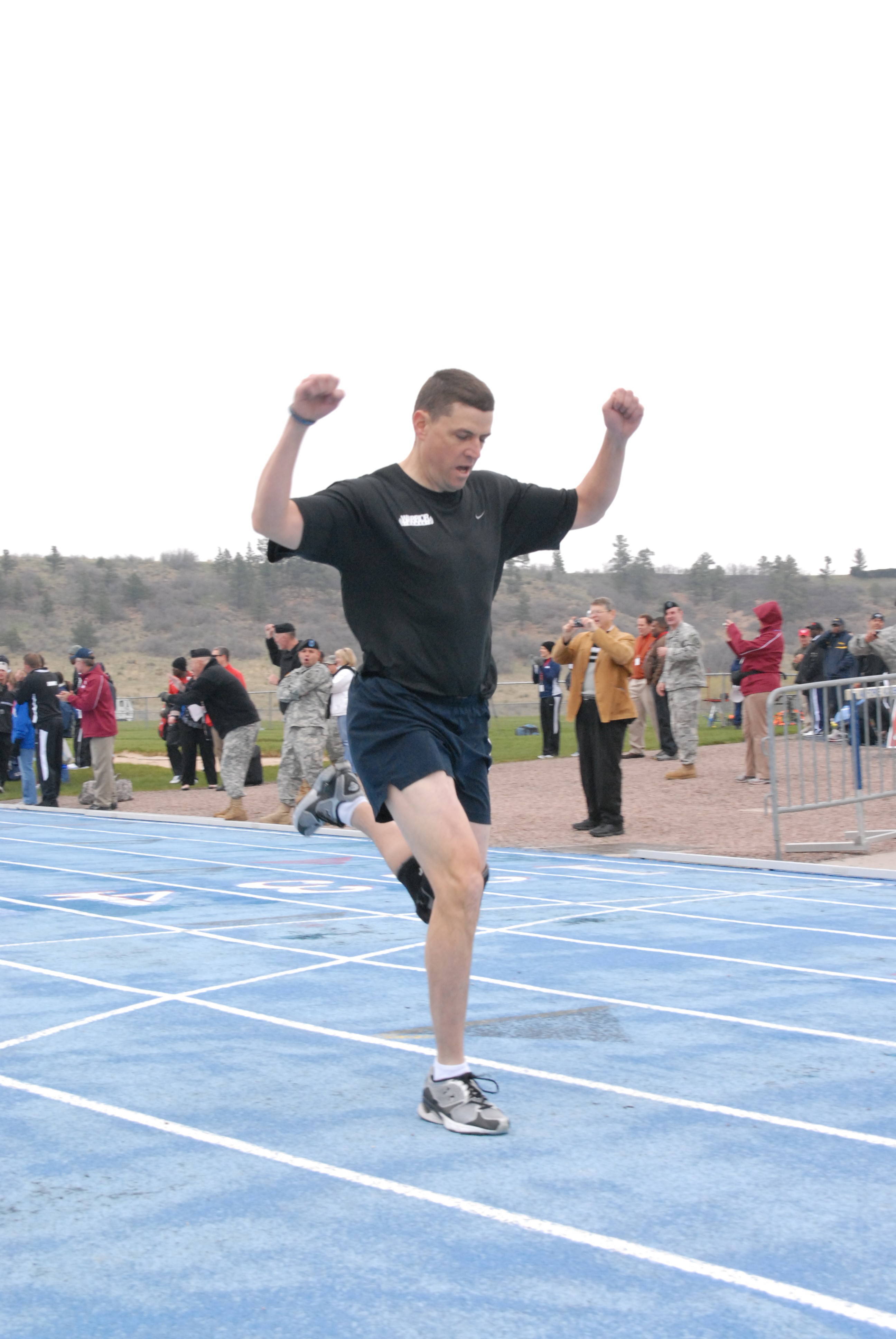
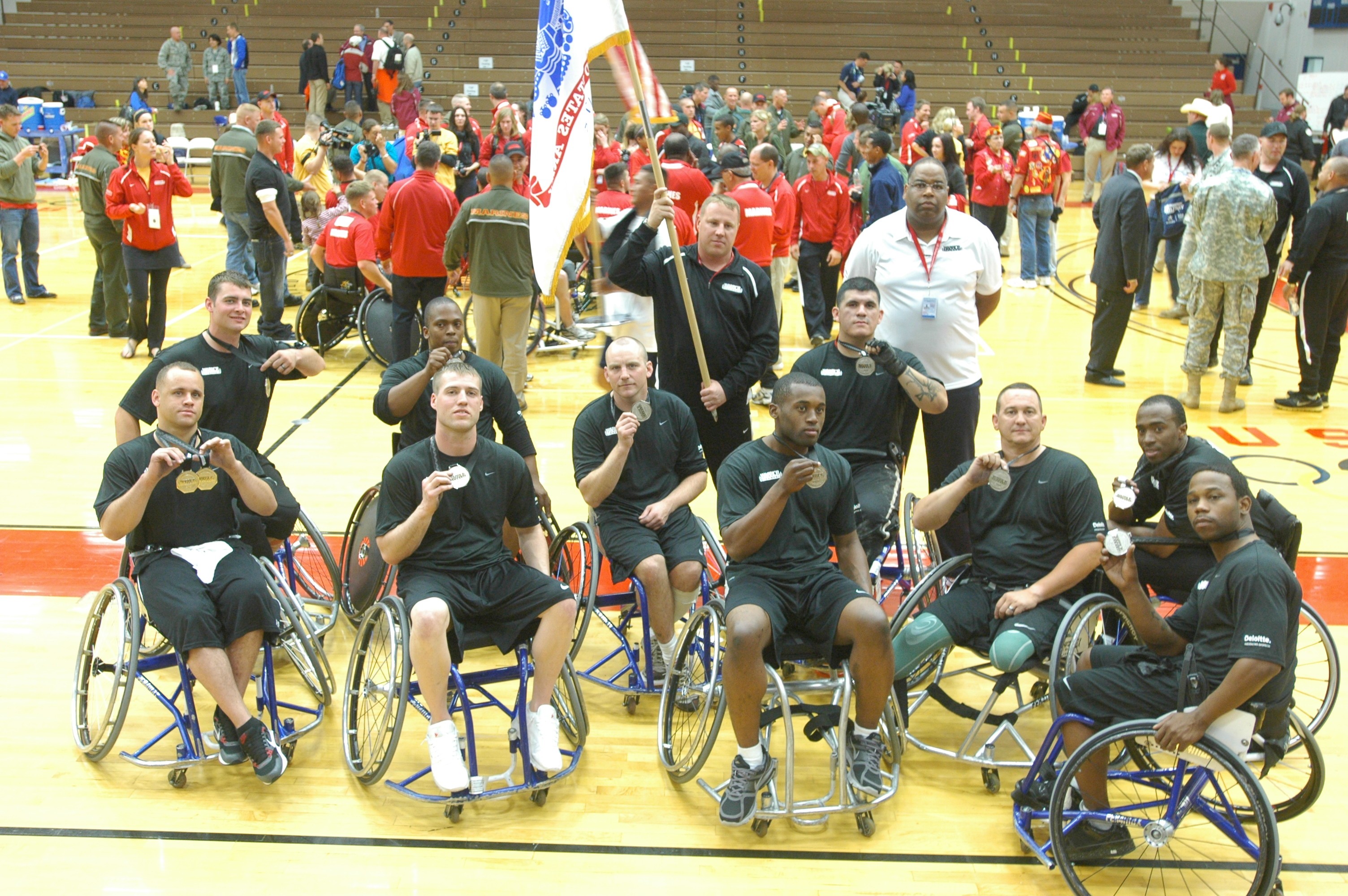
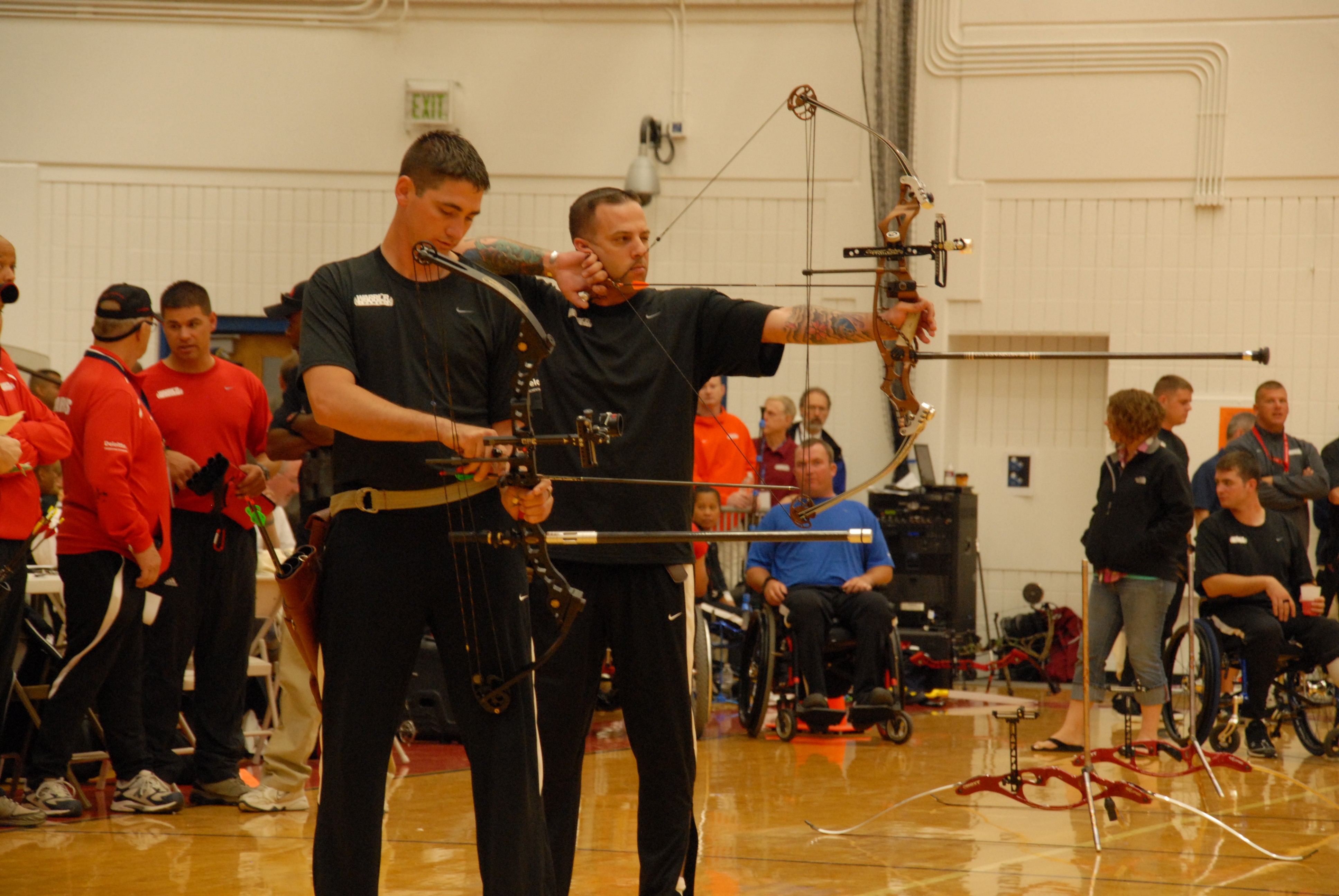
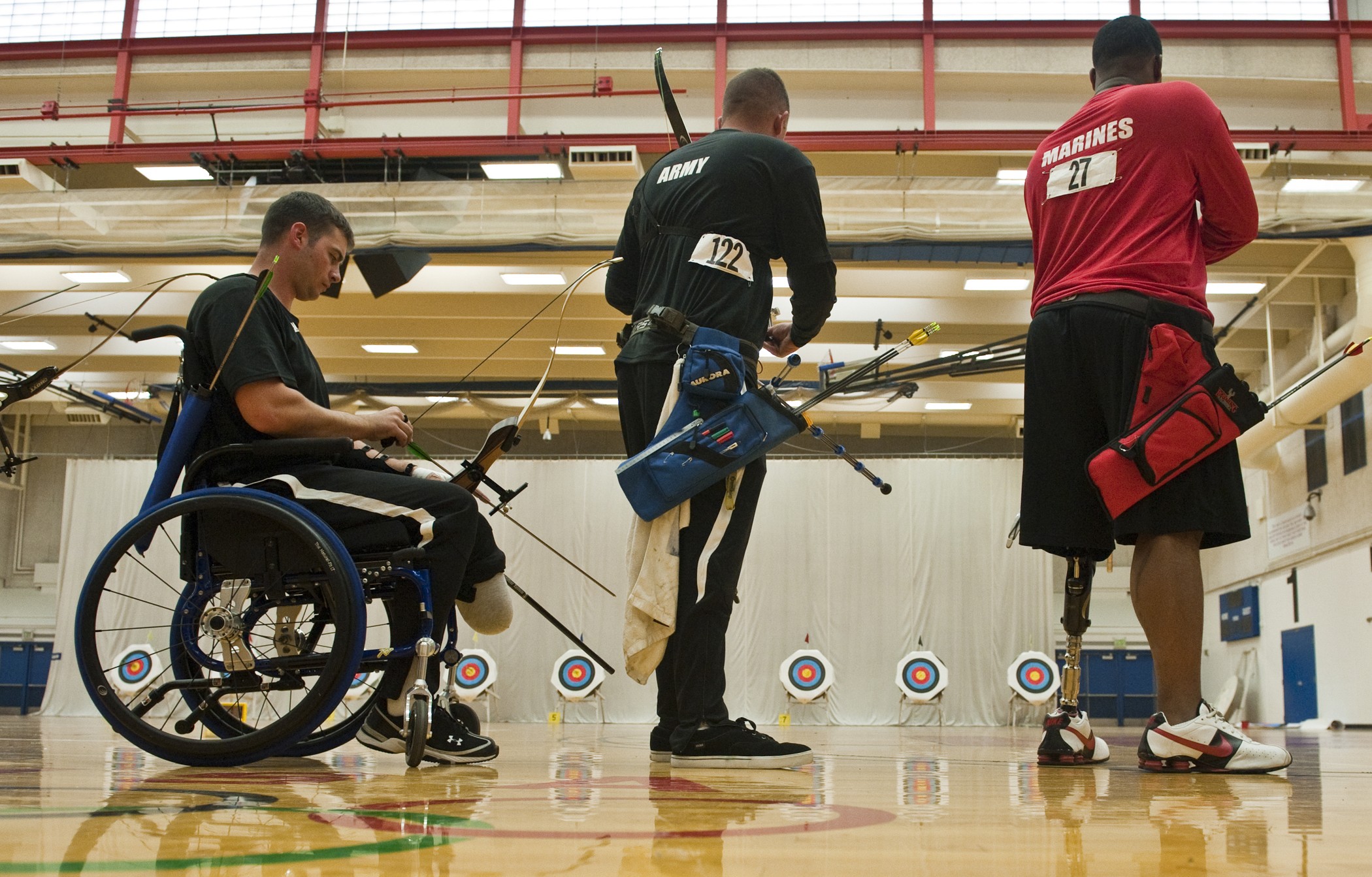
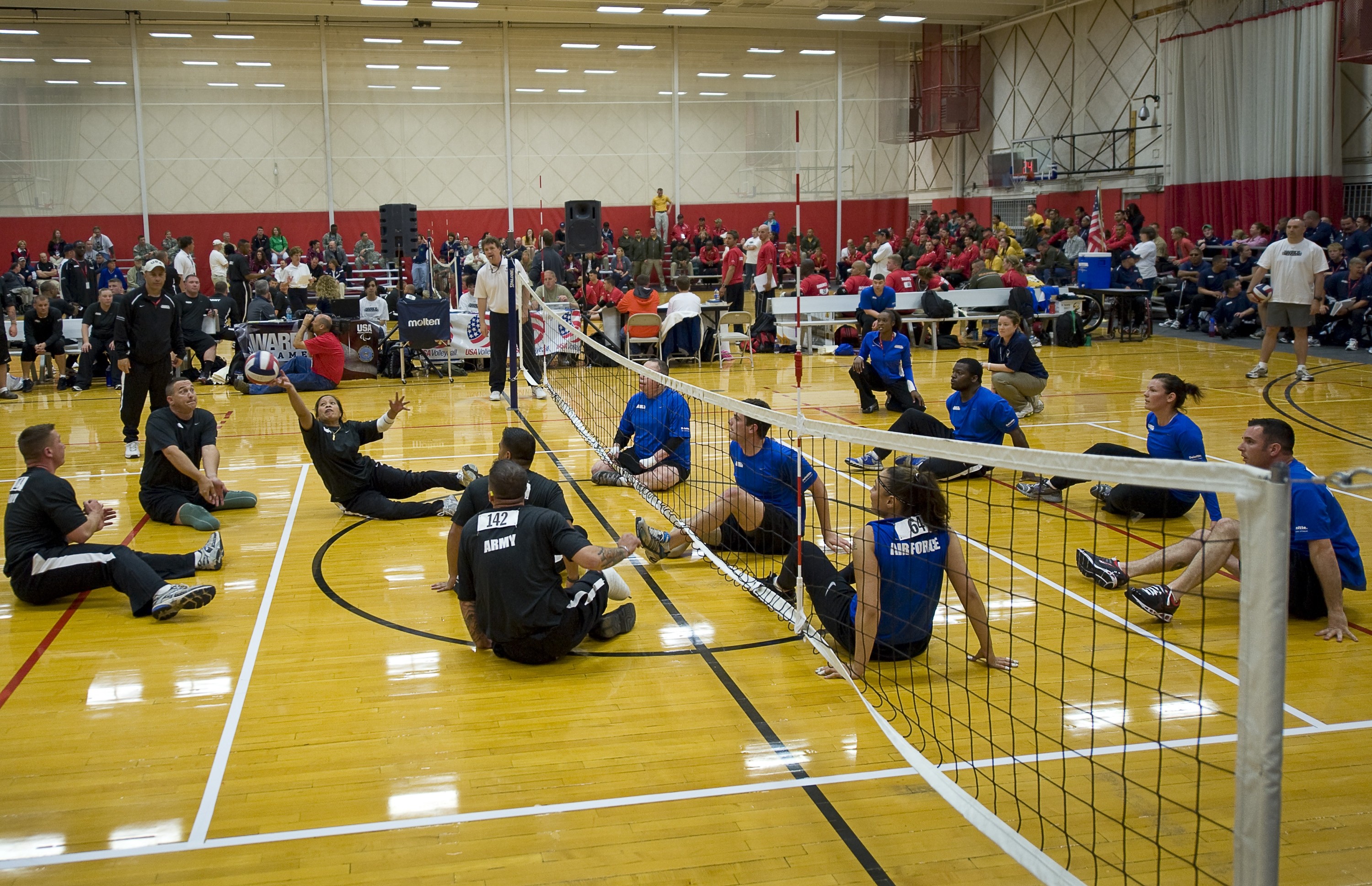
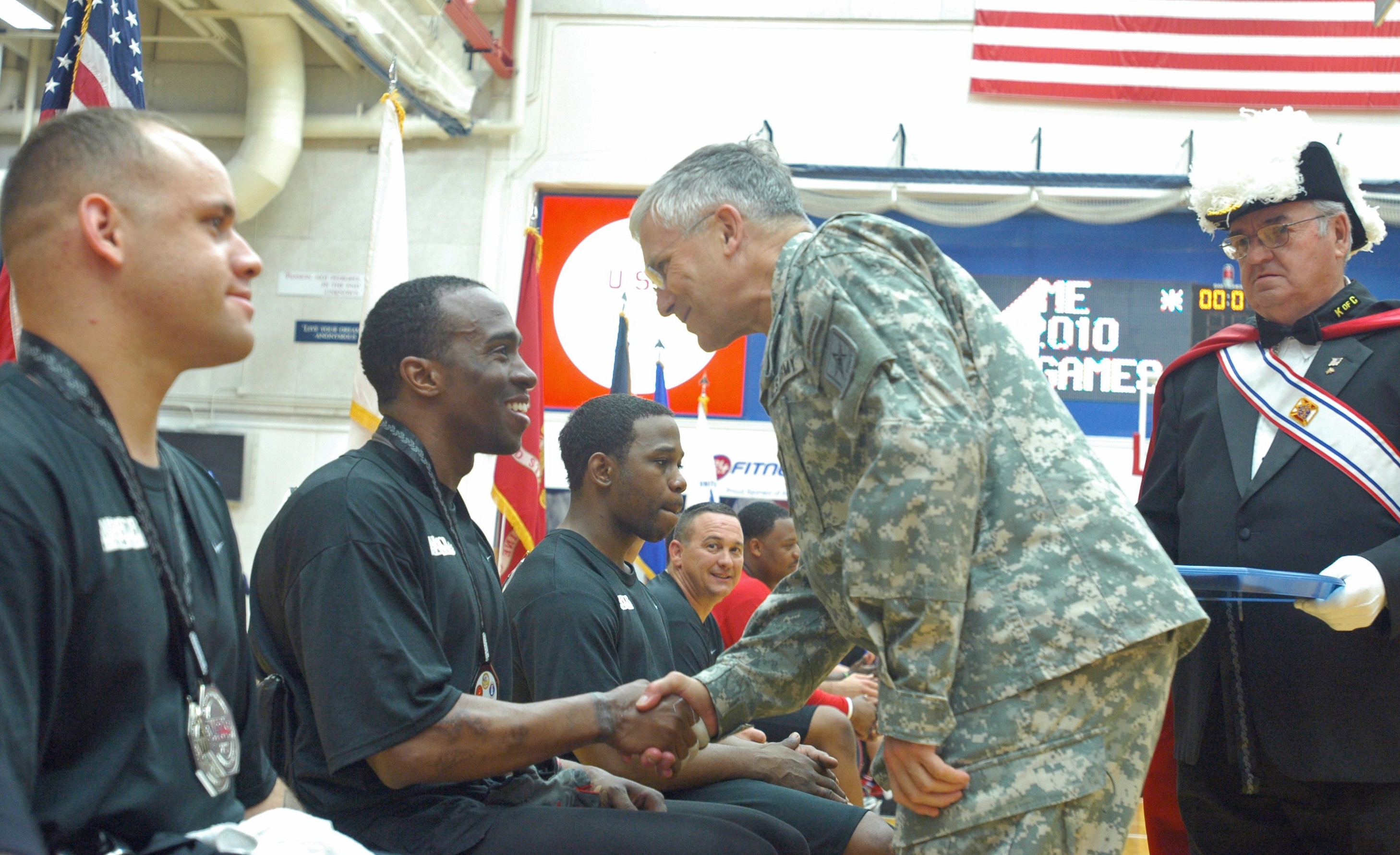
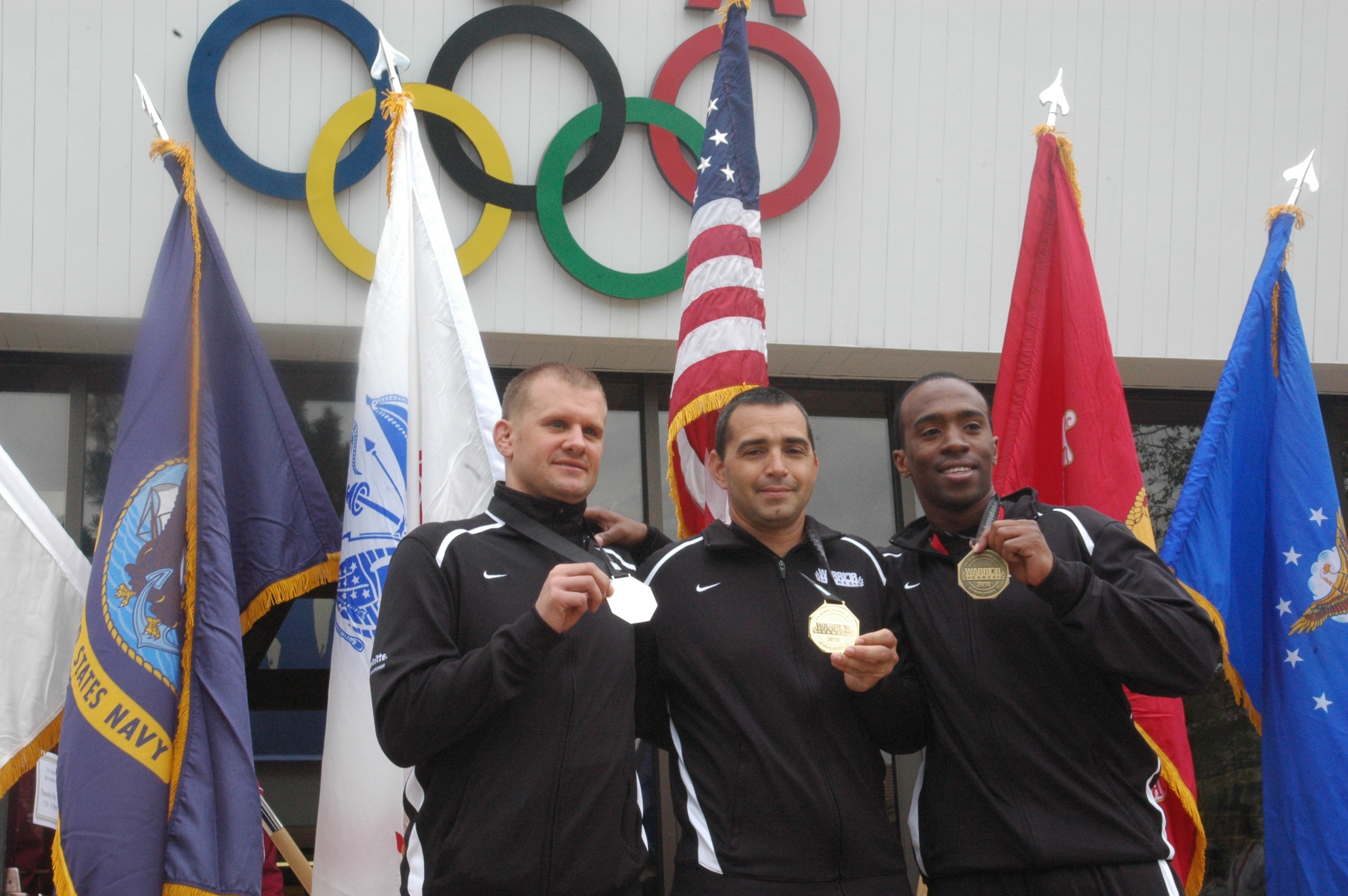
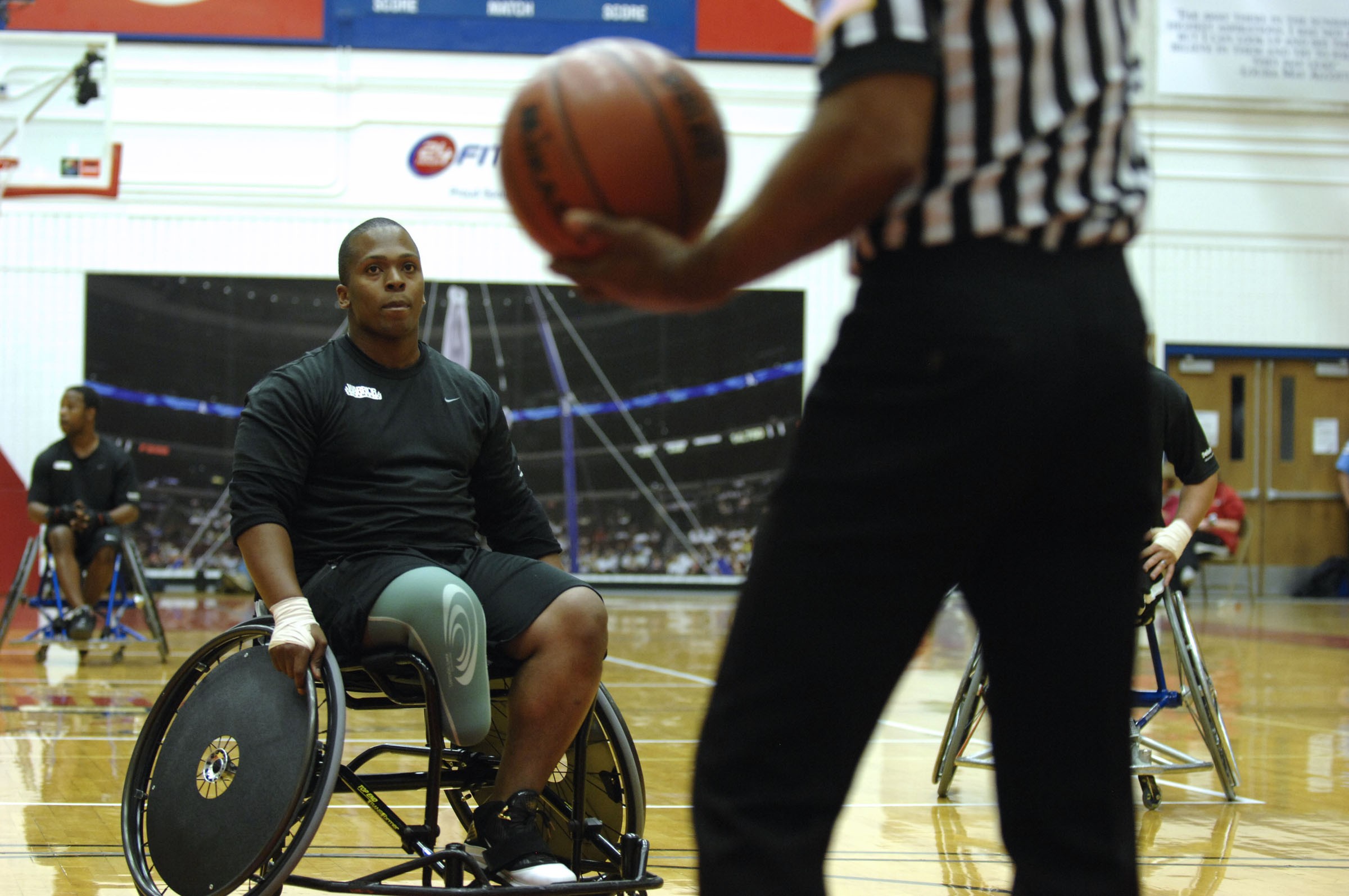
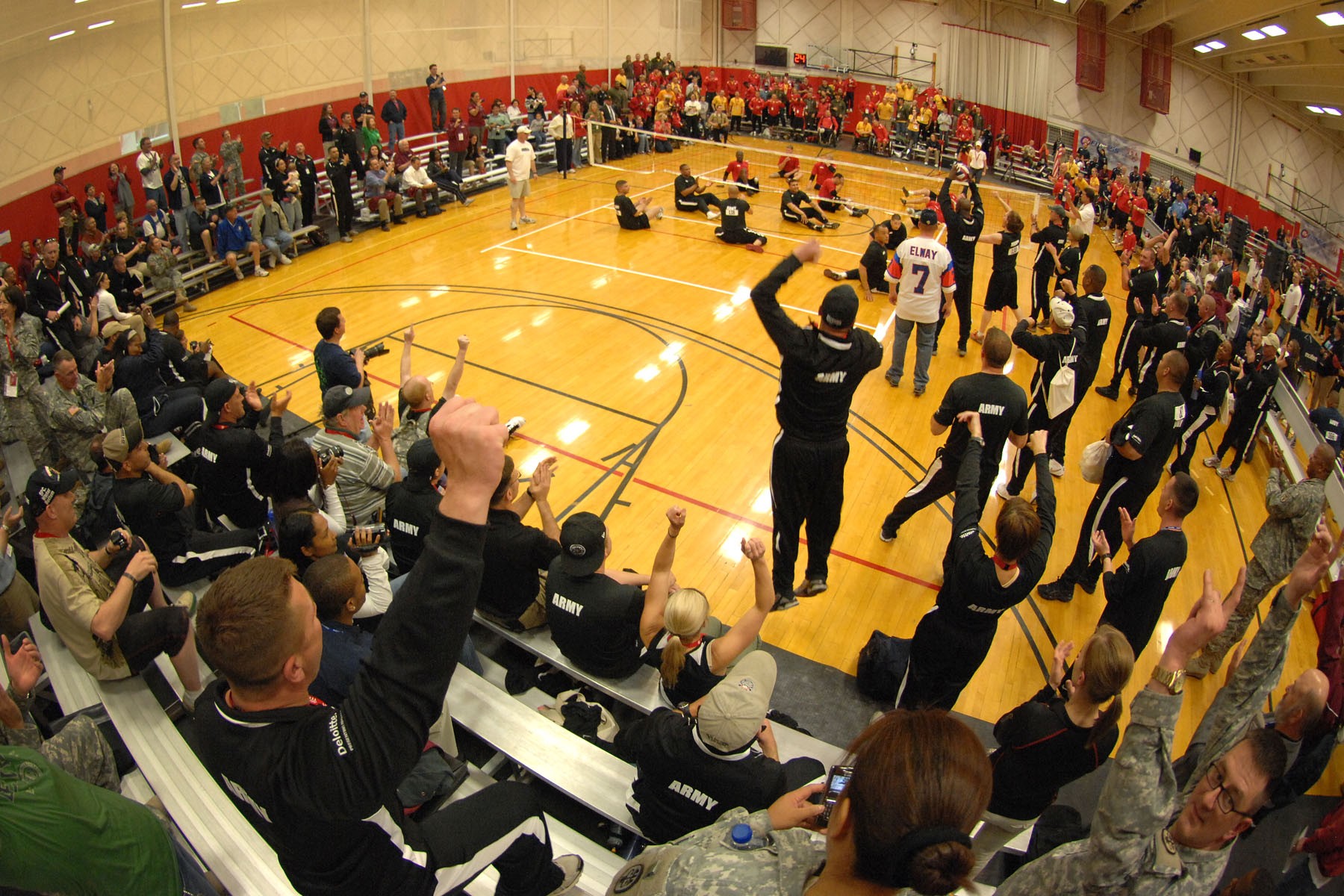
Social Sharing